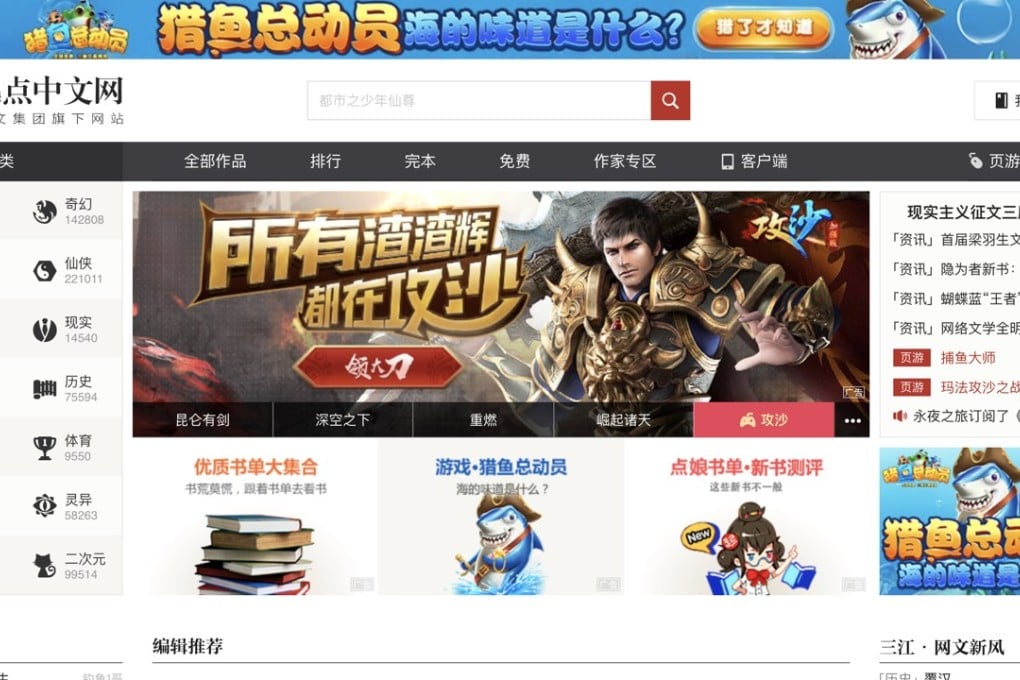China’s online publishing industry – where fortune favours the few, and sometimes the undeserving
Quantity tops quality as millions of would-be authors churn out cliched words in quest for mass approval

Each day for three months, after an eight-hour shift serving fried chicken in a fast-food restaurant, Tang Qianqian retired to his cramped flat in Huizhou, a third-tier city in Guangdong province, to spend four hours writing the next chapter of a fantasy novel. His tale was of a young man reborn into a magical world, in which he fought monsters, collected artefacts and progressed to new adventures.
Readers could immerse themselves in his story as it unfolded on Qidian.com, one of the most popular online publishing platforms in China, but the few who did so never found out how the tale ended, because Tang didn’t make it that far. The serial was cancelled after about 100 chapters, due to a lack of eyeballs.
Such are the rules of the online publishing industry in the world’s most populous nation: if a story wins the numbers game, it lives to be read; if it does not, it dies.
Tang was just one of millions of aspiring writers aiming to hit the big time in an industry that generated 12.7 billion yuan (US$2.5 billion) in revenues in 2017, according to Shanghai-based market-research company iResearch Consulting. The successful few, such as Zhang Wei, who is better known by the pen name Tang Jia San Shao, can earn more than 100 million yuan a year.

When starting out in the online business, writers post the first 100 or so chapters of a story – each of which tend to be between 2,000 and 3,000 words – without payment, to test the waters. Only when a title has acquired a sizeable following will the writer be offered a contract.
